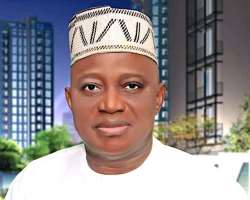Nigeria: Why Social Investment Programmes Can Fail

In the dying days of 2023, India has supplanted Nigeria as the poverty capital of the world. This is not to say that Nigeria's poverty ranking has improved the living conditions of the people. In fact, the conditions of living are worsening.
The Tinubu administration has embarked in two policies that are akin to IMF prescriptions. The renewed hope agenda devalued the currency by 150% and this has given rise to spiralling inflation. The second policy is subsidy removal without any practical measures designed to palliate the excruciating hardship Nigeria's are facing as a result of the increase in the price of petroleum products amidst frequent collapse of the National Power grid. These two devilish policies are slowly down economic development.
The most buffeting is the fact that Nigeria is navigating a debt-trap diplomacy whereby her national debt is hinged on borrowing. For now, the Tinubu administration has no plans for industrialization nor has it given a thought to job creation. Nigeria operates a street-beggar economy and most retrogressive is the fact that we have resurrected failed social investment policies of the past.
The twelve indicators of poverty have not been tackled. Nutrition is a major challenge; child and adolescent mortality is looming large; maternal health has deteriorated. In the area of education, enrolment is diminishing at the foundational level of education. Nigeria's have no cooking fuel, no clean drinking water poor sanitation and poor housing. These malaise have contributed to increase the misery index of Nigerians.
Under the ill-fated Buhari administration, all the social investment Programmes ended up in a disaster. The N-POWER Programme recorded only 13% success rate. It was a shorthand for disaster. The national homegrown school feeding Programme was a huge joke. It only widened access to corruption and those who ran the Programme became billionnaires overnight.
The conditional cash transfer Programme was designed to fail because of porous database coupled with rapacious corruption. It benefited only those who operated the Programme. Buhari's government enterprise and empowerment Programme which was meant to connect traders, market women and farmers was poorly managed. It was a weeping failure.
It is therefore preposterous for the Tinubu administration to even contemplate treading the same old, worn-out path of cluelessness under the guide of alleviating poverty. This demonstrates that the Tinubu administration has no value to add to rescue a dying economy. Under the seven months of this administration, not less than a dozen corporations have closed shop.
In neoliberal economics, it is absurd to see Aso Rock mouthing that the President is gallivanting and scouting for investors when the macroeconomic conditions of the domestic economic environment are parlous, poor and discouraging.
Since President Tinubu came to power he has taken the following loans:
$750 million loan for power sector: The first was approved on June 9, 2023, with a loan of $750m to boost Nigeria’s power sector. The World Bank said the loan would serve as additional financing for the power sector recovery performance-based operation.
$500 million for women’s empowerment:
On June 27, the World Bank Group announced the approval of a loan of $500 million to help Nigeria drive women’s empowerment. This was the second loan approved by the bank under Tinubu’s administration. It provided a scale-up financing for the Nigeria for Women Programme.
$700 million for educating adolescent girls: In September 2023, the World Bank approved a loan of $700 million to bolster educational opportunities and empowerment for adolescent girls in Nigeria. The loan was to support the ongoing ‘Adolescent Girls Initiative for Learning and Empowerment’ (AGILE) project. It aimed to encourage secondary education accessibility for girls residing in specific target states within Nigeria.
$750 million for renewable energy: On December 14, the World Bank approved the $750 million Distributed Access through Renewable Energy Scale-up (DARES) project in Nigeria. The project aims to provide over 17.5 million Nigerians with better access to electricity via distributed renewable energy solutions and tackle the electricity access deficit.
The World Bank recently disclosed that Nigeria was the top recipient of its fresh loans in 2022, with about $2.9 billion released to the country. According to its International Debt Report for 2023, Nigeria was followed by Tanzania, which got $2.7 billion in the same year.
It is getting clearer that the promises made on the soapbox are gradually given way for anomie, unspeakable policy somersault and grandiose failure Any well-meaning Nigerian who does not appreciate the stark reality that Nigeria is sinking to the abyss is either a hypocritical sycophant or a delusional
Dr. John Idumange is a public affairs analyst.
